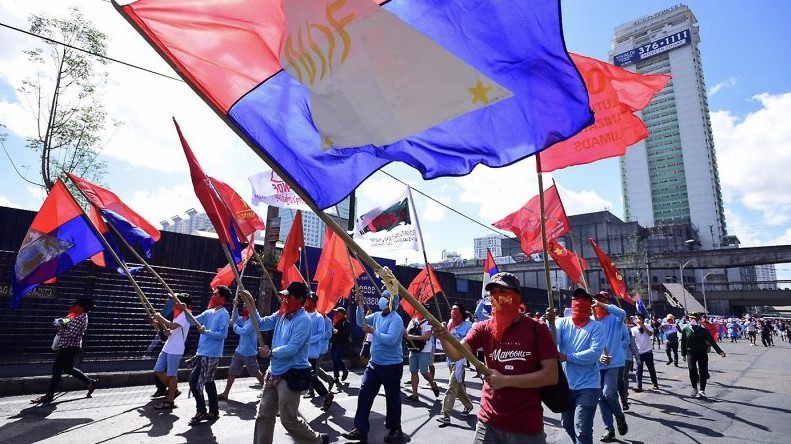The ‘holiday truce’ between the Duterte government and the Maoist insurgents of the Communist Party of the Philippines (CPP) is set to be over on January 7. The truce was called in mid-December as the martial law declared on Mindanao in the southern Philippines to deal with the Islamic State faction in the Marawi region, was scheduled to end on December 31.
After multiple calls from civil society organizations, Congress and the Cabinet, the government eventually negotiated a truce with the CPP militants beginning on December 24. Despite calls from hardliners within the military ruling party, PDP-Laban, including the mayor Davao City and daughter of the president Sara Duterte, the Duterte administration unanimously went ahead and let the martial law expire in Mindanao region.
The declaration of martial law that had lasted for more than 30 months and covered a quarter of the nation, was the largest and most extensive declarations of martial law since the end of the military rule of Ferdinand Marcos in 1981. While martial law was allegedly declared to subdue Islamist militancy in the region, whom the government claims to have “neutralized” as a security threat, it was also used to fight the CPP forces and their armed group the New Peoples’ Army (NPA). This was done even as the government was negotiating a peace deal with them through their political arm the National Democratic Front (NDF) at the time.
Second round of peace talks imminent?
One of the first moves by the Duterte administration when it came to power in July 2016 was to declare a ceasefire with the CPP-NPA. This was followed immediately with the resumption of a peace process, with negotiations conducted through the NDF, in August 2016. After the imposition of martial law in Southern Philippines in June 2017 and several violations of the truce conditions on both sides, the government withdrew from the peace process and resumed hostilities.
Over the past two years, hostilities between the government and the Maoists have led to dozens of deaths, including several peace activists, like Randy ‘Felix’ Malayao who was a prominent peace consultant for the NDF. The fallout of the hostilities manifested into violence and repression of journalists, civil society organizations and left-wing trade unionists and grassroots activists.
But whether or not the peace process will be resumed is a question that still looms. The government has only given indications, but has not called for anything definite. The first hurdle right now is to agree on a mutually acceptable location for the negotiations. Duterte has made an open dare to founder and leader of the CPP, Jose Maria ‘Joma’ Sison, to come to the Philippines for the talks. Sison, who is in exile in the Netherlands, has called for any possible peace talks to be held in a “neutral” location.
Sison has hinted at the possibility of the Maoists extending the truce period for time to negotiate the terms of peace talks. Reports from the local media have also hinted that the government will look for the same. While we wait to see what results the current truce gives the Philippines, what is undeniable is that after over two years of widespread violence, talks of peace have definitely made a comeback.





